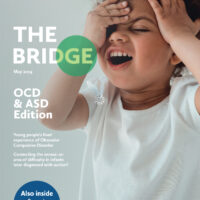Obsessive Compulsive Disorder (OCD) is a common condition, characterised by obsessions and/or compulsions. Obsessions are intrusive thoughts, pictures, doubts or urges experienced as repetitive and distressing. Some common obsessions include fear about dirt or contamination, religious obsessions, unwanted aggressive or sexual thoughts and discomfort if things are not symmetrical or even (Mataix-Cols et al., 2008).
Obsessive Compulsive Disorder (OCD)
-

Parental Mental Illness – Supporting children and young people who live with a parent with a mental illness
ACE research identifies Parental Mental Illness as one of the 10 most significant adversities and risk factors for children and young people’s mental wellbeing. This day will ‘Challenge the Silence’ that children and young people face with a parent with mental illness. The day will provide you with the skills, knowledge and confidence to help […]
- Event type
- Training Day
- Location
- London
-

Leading lights celebrated in the ACAMH Awards
We are delighted to announce the inaugural winners of the ACAMH Awards, recognising the work of individuals whose work advances our understanding of mental health in children and young people.
Read more -

Psychotic Experiences: what they are and why we care about them?
Over the past 20 years, findings from the field of psychosis research have shed new light on the prevalence of PEs among children and adolescents, revealing that about 17% of children and 8% of adolescents report experiences of these phenomena.
Read more -

ASD and OCD
This edition of ‘The Bridge’ focusses on Autism Spectrum Disorders and Obsessive Compulsive Disorder. Both of these can resemble each other with the over-focus, special interests and anxieties seen in ASD resembling the obsessions of OCD, and the routines, rituals and need for order and sameness that can be seen in ASD resembling the compulsions in OCD.
Read more -

Autism Spectrum Disorders and Obsessive Compulsive Disorder edition
This edition of ‘The Bridge’ focusses on Autism Spectrum Disorders and Obsessive Compulsive Disorder. Both of these can resemble each other with the over-focus, special interests and anxieties seen in ASD resembling the obsessions of OCD, and the routines, rituals and need for order and sameness that can be seen in ASD resembling the compulsions in OCD.
Read more -

CAMH Editorial: Volume 24, Issue 2, May 2019
Editorial: Debates in scientific practice
Read more
What is the purpose of debates? -

Young people’s lived experience of Obsessive Compulsive Disorder
How do young people really experience living with Obsessive Compulsive Disorder (OCD)? What are young people’s understanding of their development of OCD and is there a link to trauma? How do other people’s reactions to the OCD affect the young people? How do young people really feel about the help for OCD in the United Kingdom?
Read more -

Working memory deficits may compromise cognitive flexibility in OCD
Obsessive compulsive disorder (OCD) is characterised by recurrent intrusive thoughts and/or behaviours. These traits imply deficits in cognitive flexibility in affected patients, but it is unclear at what stage of information processing these deficits might emerge. To address this question, Nicole Wolff and colleagues asked 25 adolescents with OCD and 25 matched healthy controls to complete a computer-based task switching paradigm.
Read more -

Cognitive flexibility in OCD: challenging the paradigm
Data from a new study by Nicole Wolff and colleagues suggest that cognitive flexibility can be better in children with obsessive-compulsive disorder (OCD) than typically developing controls.
Read more -

Cognitive flexibility in OCD: challenging the paradigm
Data from a new study by Nicole Wolff and colleagues suggest that cognitive flexibility can be better in children with obsessive-compulsive disorder (OCD) than typically developing controls.
Read more
